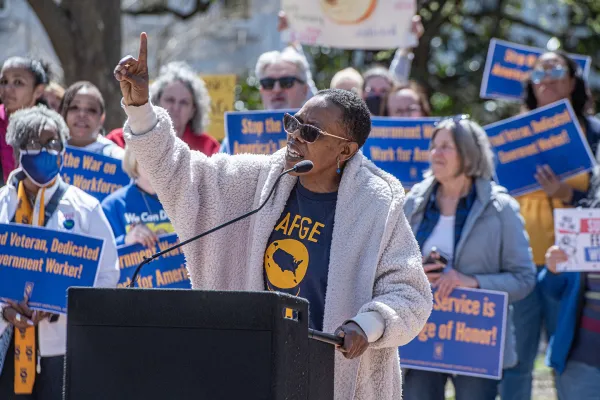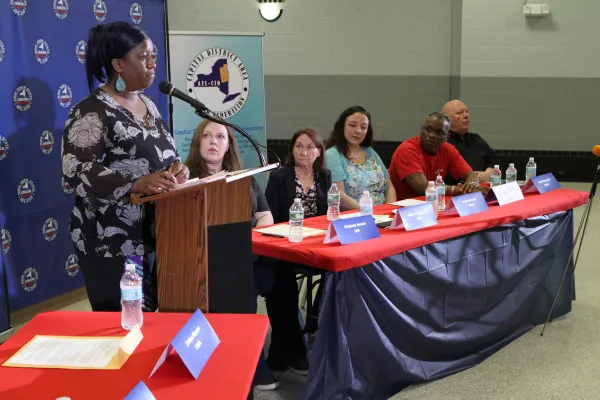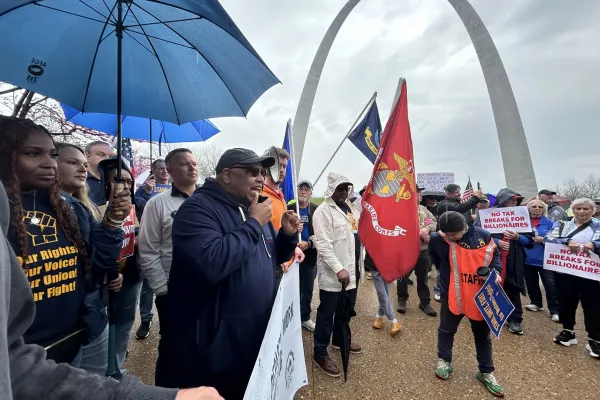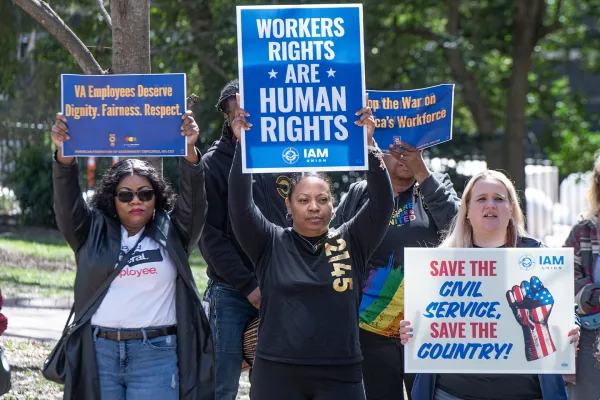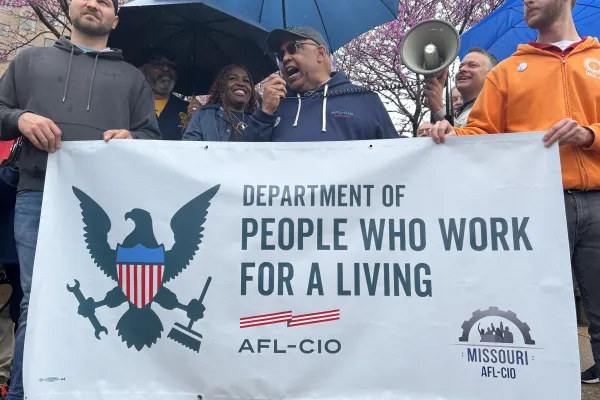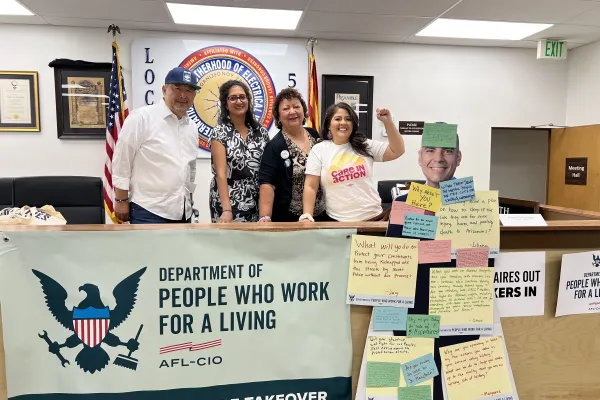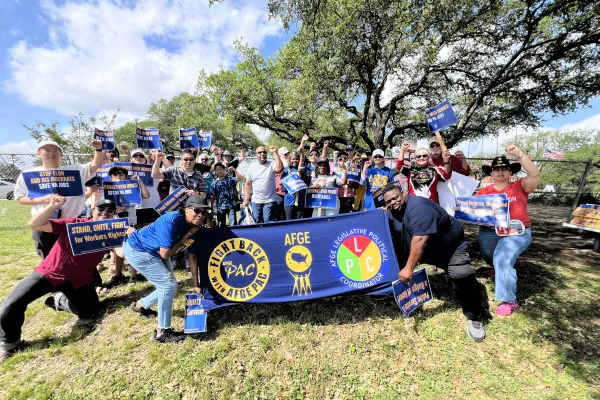The AFL-CIO’s Department of People Who Work for a Living (DPWL) recently held a series of hearings across the country to provide a platform for working people to express their views on the current administration’s policies, the impact of those policies on their lives and what working people want from their government. The hearings found that working people are concerned about ongoing cuts to federal jobs, programs and services. Workers objected to the Trump administration’s callous disregard for career civil servants, many of them veterans, and the administration’s attacks on the institutions, programs and regulations that protect working people.
The hearings featured testimony by workers and their representatives regarding the Trump administration’s attacks on the federal workforce. Witnesses expressed anger at insulting and dehumanizing characterizations of federal workers’ public service, and chaotic and lawless mass firings. They were also concerned that, due to staff reductions and other cuts to federal programs, public servants will not be able to serve their communities properly at agencies already struggling from high demand and limited resources. Witnesses cited how these cuts will have an outsized impact on seniors, veterans, people with disabilities and rural communities.
The hearings featured testimony by workers and their representatives on the wide-ranging assault by the Trump administration on workers’ rights and protections beyond the federal workforce. For example:
- The Trump administration has moved to gut the National Institute for Occupational Safety and Health (NIOSH) and other critical worker safety agencies, such as the Occupational Safety and Health Administration (OHSA) and Mine Safety and Health Administration (MSHA), putting workers’ lives at risk.
- A variety of moves by the Trump administration to curb worker power—for example, by stripping collective bargaining rights, abandoning project labor agreements and crippling the independence of agencies tasked with protecting workers’ rights—will have long-term downstream impacts that lower pay, benefits and other standards for all workers across the country.
- Frequent attacks on institutions, initiatives and services that have provided equal access protections to underrepresented populations will hinder efforts to combat systemic workplace discrimination, denying workers a fair shot at a job or advancement. The Trump administration’s mass deportation program, with its disregard for due process, threatens the constitutional rights of every worker and poses serious disruptions in key industries and local economies.
- Instead of taking a targeted, evidence-based approach to tariffs to protect domestic employment, the Trump administration has adopted a chaotic approach to tariffs. While some tariff actions taken to date have the potential to support workers, particularly in the steel, aluminum, auto and shipbuilding industries, the reckless, untargeted, on-again, off-again approach to other tariffs, including those with our most significant trading partner Canada, threaten to swamp the positive impacts.
Witnesses also expressed concern about the Trump tax plan and Congress’s approach to budget reconciliation. Medicaid and other government health programs support jobs and provide a crucial lifeline for communities and families across the country. The current budget resolution calls for dramatic cuts to these programs to give wealthy Americans a tax break. Workers expressed outrage that these potential cuts will cause millions of people—particularly from vulnerable groups—to lose their health care, and put further strain on an already overburdened health care system.
The DPWL hearings brought to light a growing frustration with the Trump administration’s anti- worker policies and the need for a new direction from the White House and Congress, with policies that support workers’ freedom, ensure fairness and provide security.


